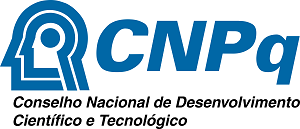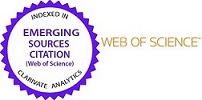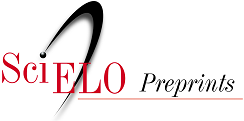A (im)possibilidade do intelectual dentro da universidade neoliberal
DOI:
https://doi.org/10.25053/edufor.v1i3.1974Palavras-chave:
Trabalho intelectual, Universalidade, NeoliberalismoResumo
The university was born and has always existed in tension between the impulse to human freedom and resignation to the constraining powers of church, state and capital. In this era of neoliberalism where the global domination of capital is almost complete, the university has succumbed. The time has come to de-colonise, to de-capitalise and to build anew the universality (the university) of human freedom. In opening conversation around this provocation, work is drawn from a research project entitled The Changing Nature of University Academic Work. The project is an ongoing qualitative study employing in-depth interviews with Australian and English academics. It aims to shed light on how academics interpret changes over time to universities and their own day-to-day work. The analysis of interview data has revealed three dominant but inter-related themes: the rise of managerialism, the push to anti-intellectualism and the subservience of academic work to economic imperatives.
Downloads
Referências
BLACKMORE, J.; BRENNAN, M. Z. L. (Ed.). Re-positioning university governance and academic work. Rotterdam: Sense, 2010. DOI: https://doi.org/10.1163/9789460911743
BOUSQUET, M. How the university works: higher education and the low-wage nation. New York: New York, 2008.
BRAVERMAN, H. Labor & monopoly capital: the degradation of work in the twentieth century. New York: Monthly Review, 1974. DOI: https://doi.org/10.14452/MR-026-03-1974-07_1
BURAWOY, M. Manufacturing consent: changes in the labor process under monopoly capitalism. Chicago: University of Chicago, 1979.
FREIRE, P.; MACEDO, D. Literacy: reading the word and the world. Westport: Praeger, 1987.
HALL, S. Future City. New Left Review, n. 21, p. 65-79, 2003. DOI: https://doi.org/10.13008/2153-3695.1737
HARVEY, D. A brief history of neoliberalism. New York: Oxford University, 2005. DOI: https://doi.org/10.1093/oso/9780199283262.003.0010
HARVEY, D. Seventeen contradictions and the end of capitalism. London: Profile, 2014.
HARVEY, D. Spaces of global capitalism. London: Verso, 2006.
KLEIN, N. The shock doctrine. London: Penguin, 2007.
KLIMAN, A. The failure of capitalist production: underlying causes of the great recession. London: Pluto, 2012.
LEBOWITZ, M. The contradictions of “real socialism”: the conductor and the conducted. New York: Monthly Review, 2012.
MARGINSON, S. Rethinking academic work in the global era. Journal of Higher Education Policy and Management, Abingdon, v. 22, n. 1, p. 23-35, 2000. DOI: https://doi.org/10.1080/713678133
MARTIN, B. R. Are universities and university research under threat? Towards an evolutionary model of university speciation. Cambridge Journal of Economics, Oxford, v. 36, p. 543-565, 2012. DOI: https://doi.org/10.1093/cje/bes006
MUMFORD, L. The city in history. Great Britain: Pelican, 1961.
NOBLE, D. America by design: science, technology, and the rise of corporate capitalism. Oxford: Oxford University, 1977.
NOBLE, D. Digital diploma mills: the automation of higher education. New York: Monthly Review, 2001.
OLSSEN, M.; PETERS, M. A. Neoliberalism, higher education and the knowledge economy: from the free market to knowledge capitalism. Journal of Education Policy, London, v. 20, p. 313-345, 2005. DOI: https://doi.org/10.1080/02680930500108718
SANTOS, B. S. Epistemologies of the South: justice against epistemicide boulder. London: Paradign, 2014.
WASHBURN, J. University, Inc.: the corporate corruption of higher education. New York: Basic, 2005.
YATES, M. Us versus them: laboring in the academic factory. Monthly Review, New York, v. 51, p. 1-4, 2000. DOI: https://doi.org/10.14452/MR-051-08-2000-01_4
Downloads
Publicado
Como Citar
Edição
Seção
Licença
Copyright (c) 2016 Grant Banfield, Helen Haduntz, Alpesh Maisuria

Este trabalho está licenciado sob uma licença Creative Commons Attribution 4.0 International License.
Os autores possuem direitos autorais dos seus textos:
A revista Educação & Formação permite ao autor os direitos de publicação, no entanto, recomenda um intervalo de dois anos para o caso de republicação.
Os nomes e endereços informados nesta revista serão usados exclusivamente para os serviços prestados por esta publicação, não sendo disponibilizados para outras finalidades ou a terceiros.























